How to manage your money to make sure you can pay your rent
How to manage your money to make sure you can pay your rent

Rent is the money that you pay to your landlord to live in your home.
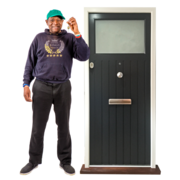
Your landlord is the person who owns the place where you live.
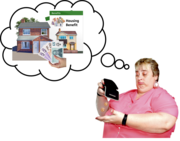
Rent sometimes costs a lot.
You can run out of money to pay for it.

But you can make a plan to help you understand how much you spend and what you spend it on.
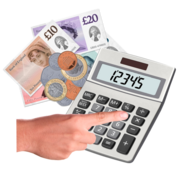
1. Check how much money you get each month
Use a calculator to add up how much money you get each month from:
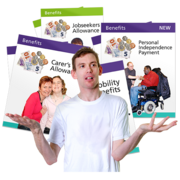
- benefits like Universal Credit
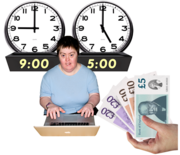
- any paid work you do
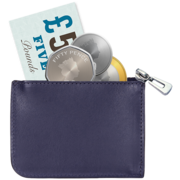
- and any other things you often get money from.
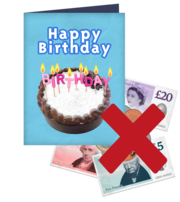
Do not include money that you only get on special occasions like on your birthday.
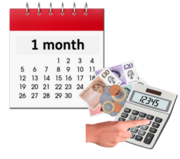
The total will be the money you get each month.
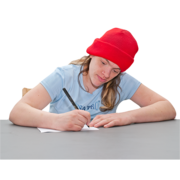
Write the total down.
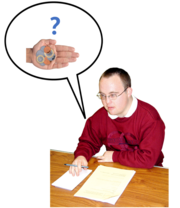
If you get your money each week, instead of each month, ask your
support worker
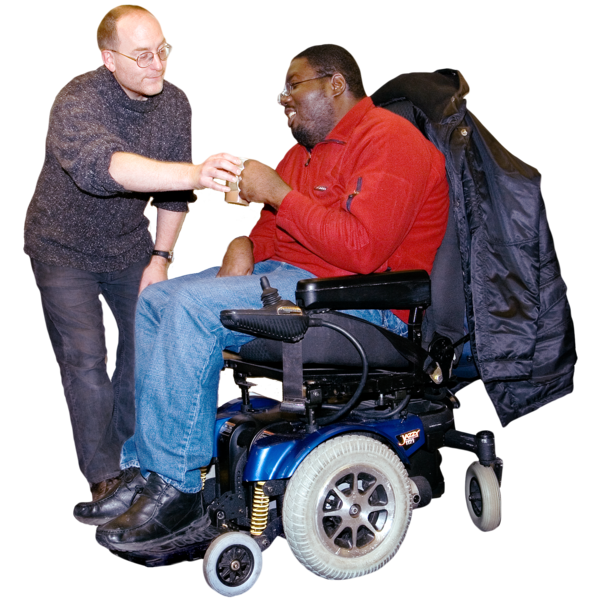 Support workers
Support workers
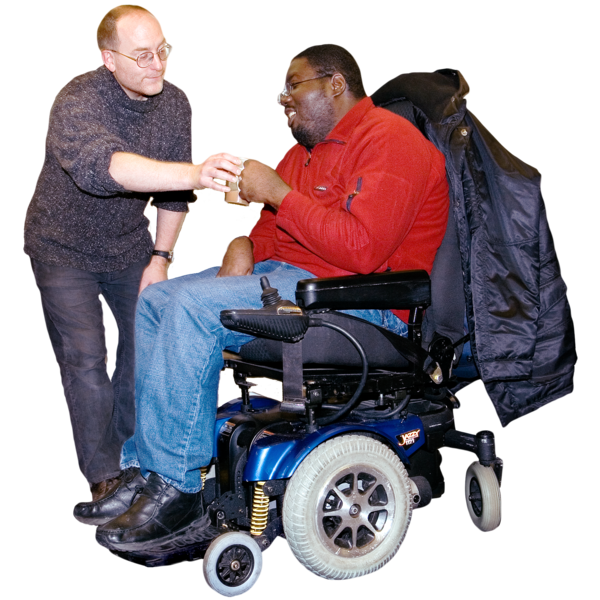 Support workers are people who are paid to give care and support to people who need it.
are people who are paid to give care and support to people who need it.
or someone you trust to help you work out how much money you get each month.
Support workers are people who are paid to give care and support to people who need it.
are people who are paid to give care and support to people who need it.
or someone you trust to help you work out how much money you get each month.
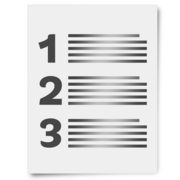
2. Write down what you spend your money on each month
Start with the most important things you pay for like:
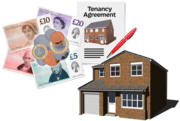
- rent
The amount of money you pay in rent should be in your tenancy agreement.

- service charges
Service charges are paid by some people for keeping things like shared gardens and buildings safe, clean and tidy.
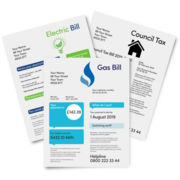
- bills like gas, electricity, water and mobile phones
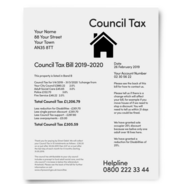
-
council tax
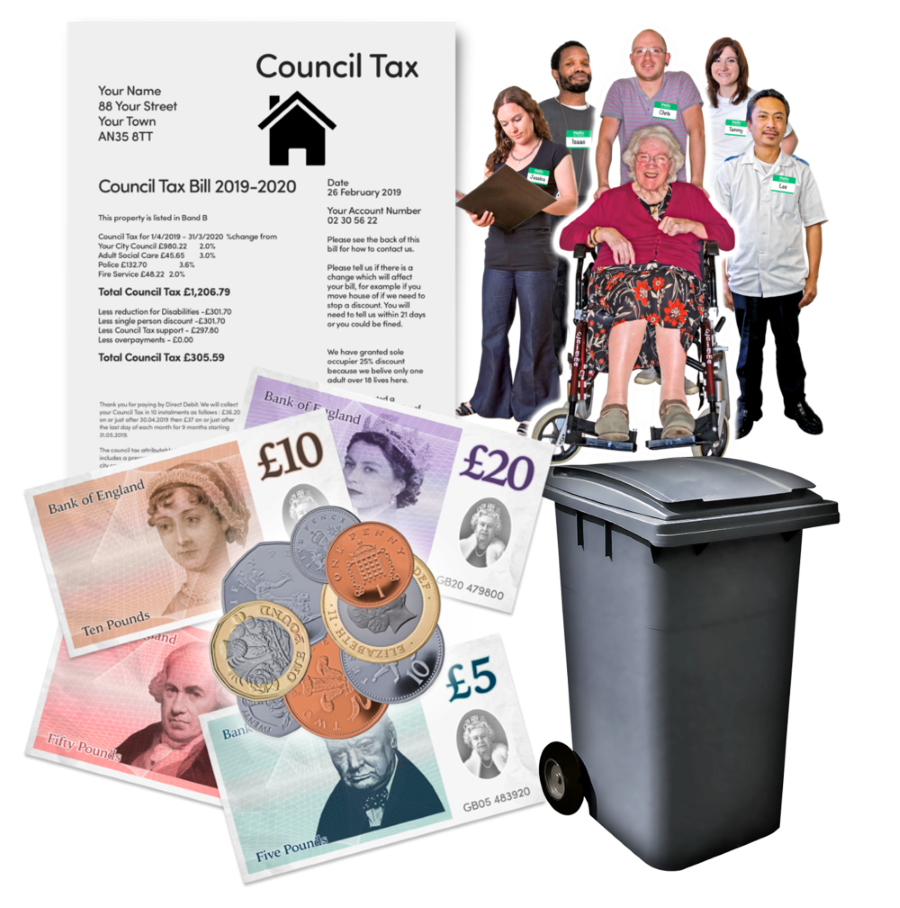 Council
Tax
Council
Tax
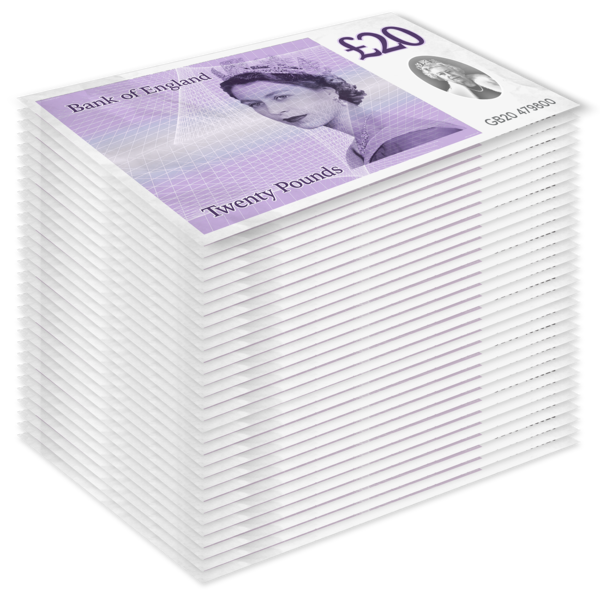 Tax is the money that pays for things like schools, hospitals and the police. There are different types of taxes like
income tax
Tax is the money that pays for things like schools, hospitals and the police. There are different types of taxes like
income tax
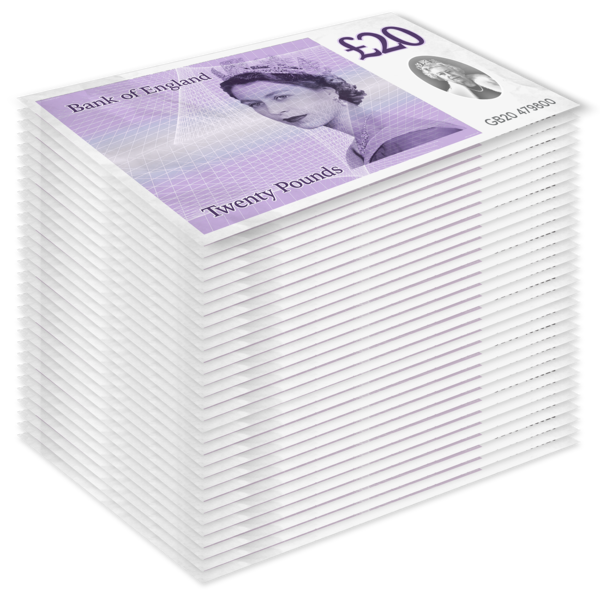 Income tax is the money that is taken out of the money you earn every month. It helps to pay for things we all need like hospitals and schools.
,
VAT
Income tax is the money that is taken out of the money you earn every month. It helps to pay for things we all need like hospitals and schools.
,
VAT
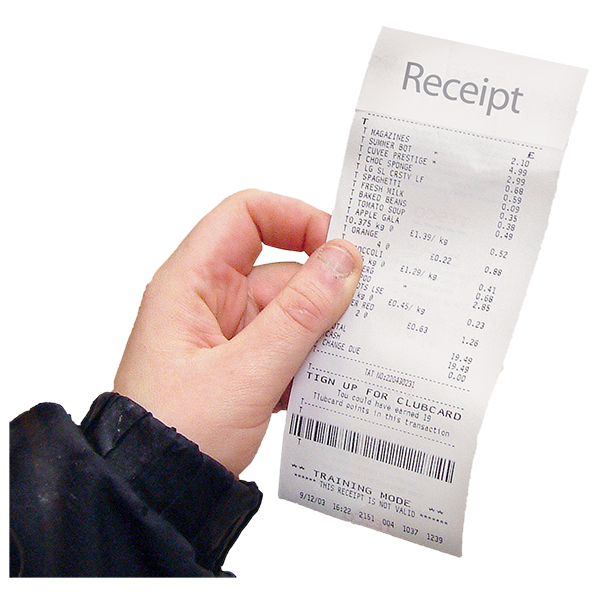 VAT is also called Value Added Tax. VAT is the extra money you pay when you buy things. The money goes to
the government
VAT is also called Value Added Tax. VAT is the extra money you pay when you buy things. The money goes to
the government
 The Government are the people who run the country. The Government decide how much tax people should pay and how things like the National Health Service (NHS) should work.
to pay for things like schools and hospitals.
and council tax.
is the money that people pay to the council. It helps to pay for things like social care (support for people), parks and dustbin collection.
The Government are the people who run the country. The Government decide how much tax people should pay and how things like the National Health Service (NHS) should work.
to pay for things like schools and hospitals.
and council tax.
is the money that people pay to the council. It helps to pay for things like social care (support for people), parks and dustbin collection.

- food

- important travel like a train, taxi or bus to see your doctor

- any medicines that you take
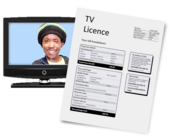
- a TV licence if you need one.
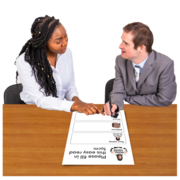
If you need help to find out how much money you spend each month, ask your support worker or a person you trust.
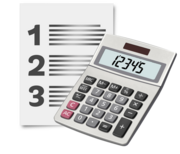
3. Add your list of important monthly payments together
When you have added your list of important payments together, write the total number down.
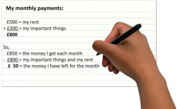
For example:
Chris gets £850 a month.
He has written down that he spends £500 a month for rent and £300 a month for other important things like: food, clothes, medicine, electricity bills and taxis to see his doctor.
When he adds those important things together, he finds out he spends a total of £800 a month.
This means that he will have £50 left to pay for other things after he has paid the £800 for his important things.
So, if Chris gets less than £850 or spends more than £50, he won’t have enough to pay for important things.

What to do if you do not have enough money to pay for everything
You may need help if the total money that you pay for rent and other things is more than the amount of money you get each month.

There could be things you could do to get more money.
For example:
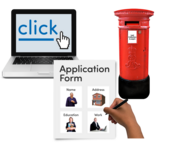
- apply for benefits if you don't already get them

- ask your
social worker
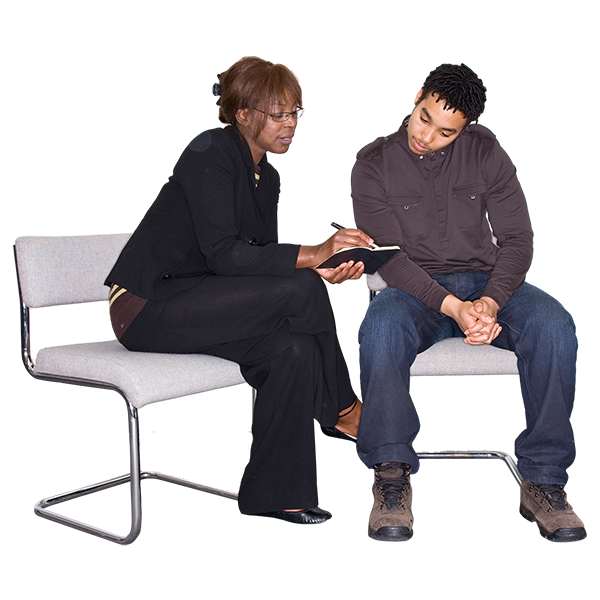 A social worker is someone who can help you get the support you need. Social workers usually work for your local council.
or support worker to help you get extra money from places like the council
A social worker is someone who can help you get the support you need. Social workers usually work for your local council.
or support worker to help you get extra money from places like the council
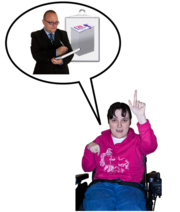
- ask for money advice.
Money advice is help to see if there are ways you could spend less money.

Call the
Learning Disability
 A learning disability is to do with the way someone's brain works. It makes it harder for someone to learn, understand or do things.
Helpline on 0808 808 1111 to find out more about managing your money and paying your rent.
A learning disability is to do with the way someone's brain works. It makes it harder for someone to learn, understand or do things.
Helpline on 0808 808 1111 to find out more about managing your money and paying your rent.
